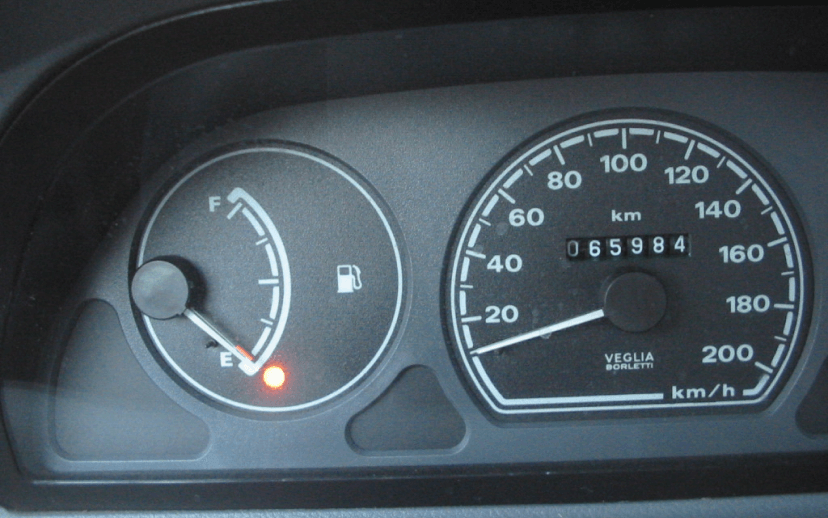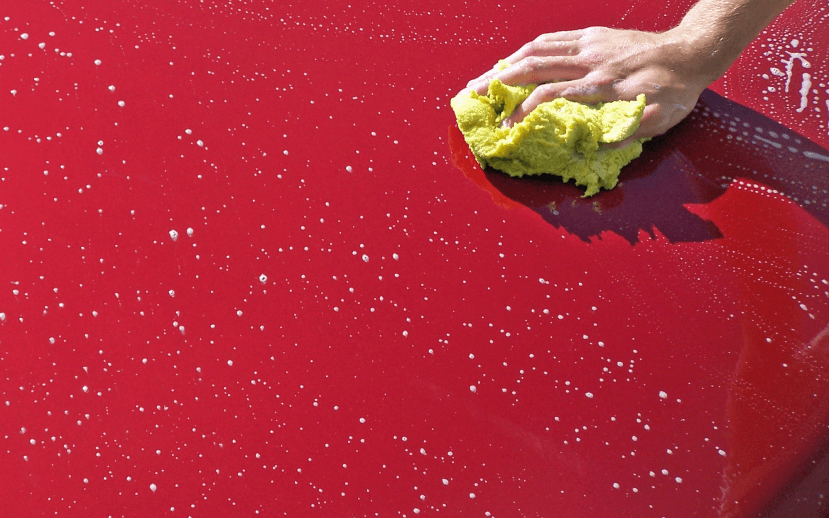





The course of true love never did run smooth or so the saying goes, and according to our new research, it seems that sharing a car with your partner can become a catalyst for arguments and frustrations. Our new report shows that over a third of couples admit that their car plays a part in the arguments they have with each other.
As romantic relationships progress, sharing a car becomes another milestone to navigate, whether you are looking to lease a new car, or share one that one of you already owns.
We each have our own unique relationship with our motors; some of us see cars as a basic, functional object, whilst some of us attach emotional importance and self-worth to our vehicles. How people view and value their car can play a big part in how couples successfully (or unsuccessfully!) share one, and so, for our latest report we surveyed the British public to find out how many people find sharing their car with a romantic partner difficult and what the biggest annoyances are. We've also spoken to a relationship expert to better understand causes and offer solutions for the conflicts that are triggered by car sharing.
While our findings revealed that over a third of all couples have fights relating to sharing their car, it's most common for couples aged 25 to 34, with 32% of those having the most car-related conflicts from this age group. Following closely behind are couples aged 17 to 24, with 26% of those fighting the most over their car being from this generation.
Of course there are many reasons why this could be the case, but with the average age of a first-time homeowner in the UK currently 34 years of age, and the average age of a new parent ranging between 30 and 34 years old, it appears that sharing a car could either be one of the first big tests couples in these age brackets face, or it's proving to be a source of serious tension while they navigate through other big life events for the first time.
| Rank | Complaint | % Who Agreed |
|---|---|---|
| #1 | Leaving rubbish in the car/leaving the car dirty | 34% |
| #2 | Always pointing out your driving errors when they are the passenger | 27% |
| #3 | Leaving the fuel tank near empty | 22% |
| #4 | Constantly changing the driving seat position and settings | 19% |
| #5 | Not washing or cleaning the car enough | 18% |
| #6 | Playing music too loudly in the car | 15% |
| #7 | Exhibiting road rage to other drivers | 14% |
| #8 | Being too fussy or precious about keeping the car clean | 14% |
| #9 | Never checking the tyre pressure | 12% |
| #10 | Never filling up the engine oil, water or washer fluid | 11% |
Men and women, both, are in full agreement on the top three most annoying traits their partner can have when it comes to their shared set of wheels. The consensus for everyone is that leaving rubbish in the car is the most frustrating thing your other half can do, with 34% of respondents agreeing with this, followed by pointing out your driving errors (27%) and leaving the fuel tank empty (22%).
Interestingly, men and women do seem to have slightly different priorities when it comes to the things they find the most annoying about sharing a car. Our survey shows that the most notable differences include women caring more about their partners not indicating or allowing them to change the music or volume, compared to men caring more about their partners not checking tyre pressure, or filling up engine oil, water, or washer fluid.

We spoke to relationship expert and Wingman founder, Tina Wilson, to reveal what it is about car sharing that can incite fights in couples, and what you can do to avoid it. According to Tina, "Some people feel their car is an extension of them, so it can cause tension in relationships where a car is shared, but both parties don't have the same 'car etiquette'".
When we asked Tina why couples argue so much over car maintenance, she told us that:
Fighting over cleaning or refuelling the car, for example, is a very common problem for people that have different opinions over how they want to use a car. Leaving rubbish can show that you don't take pride in looking after your possessions, or even that you have other priorities - and this is where it can start to cause tension between you and your partner. You may simply be rushing to get home from work and forget to refuel, but this can be very frustrating for your partner when they go to get in it and the car is empty again.
You should try to remember that a car symbolises far more than just a vehicle to get around. For many, they can have significant emotional ties. It can be years before we finally get a hold of our dream cars, starting off learning to drive in family vehicles, and then buying makes and models within our price ranges until the day it's possible to invest in a set of wheels you've hoped to own your whole life. Cars can symbolise hard work and self-worth for some. For others, it can also be a safe space, the place where you get some alone time if you live in a busy household, or even just a place where you can mentally escape and listen to your favourite radio show or music. If your partner undermines this, it can feel like a personal attack and cause significant tension.

Tina explains how couples could avoid these situations from arising:
If you never helped with chores at home or expected your partner to constantly stock up the fridge or maintain the garden, your partner would quite rightly feel taken for granted, so don't treat your shared car in this way either.
Regardless of the reasoning behind why we're upset about the car - if it feels like your partner isn't listening to you or understanding why it's important to you that you want the car to be clean and refuelled, then it can manifest itself as a bigger relationship conflict - that your partner isn't listening to you, or doesn't care. Dealing with these issues can be very simple, but taking notice and acting shows you are considerate of your partner's feelings. Showing that you're doing something about how they feel can go a long way to making your loved one feel understood.
When it comes to car maintenance, she recommends car owners to:
Bring your rubbish in, or if you keep forgetting then buy a bin for the car and empty it every few days instead. Fill up the car with fuel at the weekend so you know there is less chance you'll need to do it mid-way through the week or go together en-route to doing something fun over the weekend so it's a joint responsibility instead.
With driving etiquette, it's a bit more complex, but Tina recommends that all couples consider why they're nitpicking at their partner's driving and what impact it can have on their loved one's self-worth:
Pointing out what you may feel is a driving error, or even a wrong turn, can be very irritating for your partner. Even though you may think you're helping - are you really? Perhaps you're criticising to show you're a better driver.
Driving itself can be a stressful experience, and cars are enclosed spaces - both of which contribute massively to cars being pressure cookers where arguments are far more likely to take place. When your partner is taking on a big responsibility, like getting the passengers in the car to their destination safely and on time, it can feel hurtful for this to be invalidated with critiques on their driving style - keeping everyone safe is the priority here, and showing your partner you appreciate that without criticising them is important and helps avoid a hit on their self-worth.
When quizzed on how much our survey respondents trust their partner to drive, the results were certainly surprising. While the majority said that they'd trust their partner just as much to drive their car as they would to look after their pets or children, a significant portion would not.
We asked if they'd trust their partner to look after their pet, but not to drive their car, and 20% of individuals agreed with this statement. Interestingly, it's men that hesitate over entrusting their partner with their car, more so than women, with 29% of males agreeing with this statement, compared to just 14% of females.
Similarly, when asked if they'd trust their partner to take care of their child, but not drive their car, the majority disagreed (42%), while just 19% agreed. Once again, it was males that identified with this sentiment the most. Almost a third (31%) of males agreed, while just 1 in 10 (12%) of females agreed.
Tina commented on this phenomenon:
Studies have shown that our belongings can have a significant impact on our egos, playing a role in how secure we feel and even how confident we are in our relationships. For many, the items we own can even fill our emotional needs, comforting us during times of loneliness, and boosting our self-esteem and feelings of capability. With this in mind, it's easy to see how our cars, which are incredibly important in giving us feelings of independence, can be something we feel the need to protect - from partners either not taking care of it, or when it comes to their driving.
These feelings are perhaps not replicated when it comes to child or pet care, due to lingering stereotypes that women are less capable or knowledgeable about vehicles yet are seen by society as more than capable when it comes to taking care of others. It's important to note though, that this is a stereotype not a fact, nor is it an accurate reflection of individual abilities or preferences, regardless of gender. In fact, analysis by the Guardian in 2021 revealed that male drivers were three times more likely to be in road collisions with pedestrians, compared to women.
If anything was to happen to your car, when one member of the couple is driving it, that's what insurance is for. Showing trust in your partner with your beloved car will make them feel like you're a team and is a great way to build a good, strong relationship. If you really cannot trust each other to drive your car, then maybe it's time to look at getting one each to avoid the conflict from arising.
While our survey results show that a significant proportion of couples do face struggles over sharing their car, it's important to note these can be avoided! Clear communication about what each partner expects regarding the vehicle, and some compromises, is certain to lead to a smoother ride.
If you're finding it difficult to combat these scenarios however, and you're not yet ready to buy a second vehicle - perhaps consider leasing a car in the interim, not only will you avoid clashing with your partner over the car, but you can often opt for car maintenance packages along with your lease.
Survey Results: Using Censuswide, we surveyed over 1,000 drivers who share a car with their partner - asking them their opinion on how often they fight with their partner over sharing a car, what exactly they fight about, and how much they trust their partner behind the wheel.